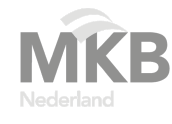Nice to talk about that. pr and thought leadership but what does it actually mean? And when do you use it? Or another question? You are not alone! That's why: the FAQ page. With the most frequently asked questions and the most concrete answers.
Is your question not listed? Fill us contact form enter and ask your question directly to our team.
PR is useful for any organization, whether you're a start-up or an already major player in your market. With PR, you can work on various parts of your organization: from brand awareness to positioning yourself as an expert (thought leader) in your industry.
With public relations make sure you have a strong brand identity and visibility with the audience you want. That means: you are seen as the expert in your industry (thought leader).
As a thought leader, you have the knowledge, expertise and insights that are interesting for your target group (s). This makes you a knowledge leader in your industry. As a thought leader, you have the credibility and authority to influence others, and you communicate that. As a result, both the media and the customer know where to find you when they are looking for an expert in your industry.
nxt agency makes various efforts to ensure that our customers end up in the news. For example, we have a large network of journalists - in various sectors where we know what news is of interest to them. In addition, we are aware of what's going on in the news, so that we can quickly recognize signs of change and respond to them. This also helps us predict possible trends and find out newshooks that are coming. We also keep an eye on what news is coming up, such as political developments and announcing figures. The result: a strategy that does not lag behind the facts.
Translating facts and figures to a coherent and newsworthy story: for many organizations, this remains difficult. Fortunately, we are experts in that. By scheduling brainstorming sessions with our customers, we really get to the heart of a message. Then we translate this into a newsworthy message that will reach the right media outlets via the right journalists. In this way, we ensure that your expertise is presented to the target group that benefits most.
What if your organization already uses paid ads? Or if you're unsure between PR and ads? Glad you asked! By purchasing ads, you ensure visibility among a specific target group. In addition, you can be commercial and sell your product or service, often with a direct call to action. Public relations works slightly differently, and also has a different purpose. PR expressions focus more on content and knowledge. You're not trying to sell something right away, but show that you know what you're talking about. In this way, you market yourself as thought leader. This increases the credibility of you and your organization, and that's how (future) customers also know: they need to be with you!
If you compares the two there is no question of a 'better' option. Ideally, you should make use of both options. The choice depends on your intention. As a PR agency, we do recommend that you always start with PR. Duh. But no, not just because we want you as a customer. Build your organization's reputation first. Think about what you have to say and try to share your organization's unique insights. Make sure that the focus is on sharing knowledge. So you have a clear brand identity and high reliability, even before you invest in the increasing your reach. So you also ensure a higher conversion and more sales!
Then use advertising to repeat your message and to communicate exactly what you want to say to the target group. You are then not bound to the journalist's requirements. You decide what the message will look like, who you want to reach with it and when you want to do it. This ensures that you sell a specific service or product.
Sure! The sectors on our website are our specialties. Industries in which we have a lot of experience, because we already many customers have helped in these sectors. Of course, that does not mean that we cannot or do not want to go outside of this. We have a large network of journalists in both our expertise sectors and beyond. Feel free to take contact us to discuss the options.
We are your brand's growth accelerators. Claim your thought leadership now. Our experts and network are ready to shape and promote your expertise.




.svg)












.svg)












.svg)







